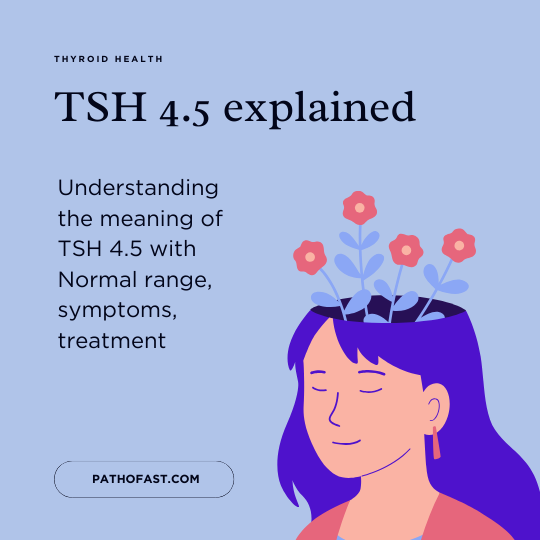Smart Ways to Treat High DHEA Levels in Females for Better Hormonal Balance
Understanding High DHEA Levels in Females
Dehydroepiandrosterone (DHEA) is a hormone produced by the adrenal glands and plays vital roles in hormonal health. **High DHEA levels** can present several health challenges for women, causing symptoms such as irregular menstruation, weight gain, and mood swings. Understanding the meaning of high DHEA levels is crucial for proper management and treatment. ***DHEA in females*** can fluctuate due to various factors, including age, stress, and underlying medical conditions. Addressing these concerns starts with recognizing the symptoms of high DHEA levels and seeking appropriate treatment options.
Symptoms of High DHEA Levels
Identifying the ***symptoms of high DHEA*** is the first step in addressing hormonal imbalance. Common signs include excessive hair growth (hirsutism), acne, menstrual irregularities, fatigue, mood changes, and even issues with libido. Women may also experience anxiety and stress stemming from hormonal fluctuations. Understanding these symptoms is essential for diagnosing DHEA levels effectively. Regular consultations with healthcare professionals can aid in recognizing patterns indicative of atypical DHEA function and the need for intervention.
The Role of DHEA in Hormonal Balance
To appreciate ***proper DHEA management***, recognizing how DHEA operates in the body is crucial. It acts as a precursor to both estrogen and testosterone, balancing female hormone levels. Therefore, high DHEA levels can lead to an overproduction of androgens, disrupting the delicate dance of gender hormones. This disruption can impact various bodily functions and overall female health, coordinating the significance of maintaining DHEA at balanced levels.
Natural Remedies and Lifestyle Changes for Lowering DHEA Levels
Incorporating ***natural remedies for DHEA*** management provides a holistic approach. Lifestyle interventions such as diet modifications, stress reduction techniques, and exercise regimes can profoundly affect DHEA levels. Management of adrenal health is essential since adrenal glands significantly influence DHEA production. By employing practical strategies, women can actively work toward achieving a healthier hormone balance.
Nutrition for DHEA Levels
Nutritional therapy plays a pivotal role in managing ***DHEA levels reduction*** effectively. Foods rich in antioxidants, omega-3 fatty acids, and fiber can help regulate hormone production. For example, incorporating fruits, vegetables, lean proteins, and whole grains into one’s diet can provide the nutrients necessary for supporting hormonal health. Additionally, specific vitamins and minerals – such as Vitamin B5 and magnesium – are known for their role in optimal adrenal function and hormone maintenance. Moreover, avoiding high-sugar and processed foods can mitigate inflammation and support hormone balance.
Stress Management Strategies
Since stress directly influences hormone production, particularly cortisol and DHEA, implementing ***stress management strategies*** is vital. Techniques such as mindfulness meditation, yoga, and regular physical exercise can help lower stress levels. Engaging in hobbies and social activities also offers psychological relief, contributing to better overall health. Women experiencing high DHEA levels should consider these practices as part of their routine to enhance hormonal well-being.
Medical Options for Reducing DHEA Levels
In more severe cases or where natural remedies may fall short, exploring ***medical options for DHEA*** management is necessary. A healthcare professional can help determine the best course of action, which may involve hormonal treatments for women or referring to an endocrinologist for specialized insight. Medications may include the use of birth control pills or anti-androgen treatments, which can help stabilize and normalize hormone levels.
Consulting with an Endocrinologist
Seeking help from an endocrinologist can be an important step in managing high DHEA levels effectively. They can provide valuable insights into hormonal health, conduct Ongoing testing of DHEA levels, diagnose potential underlying conditions, and tailor treatment options accordingly. The endocrinologist’s role is vital to understanding the connections between adrenal health and overall hormone balance, ensuring women receive comprehensive and appropriate care.
Hormone Therapy Options
***Hormone therapy options***, including bioidentical hormone therapy, may be recommended based on individual assessments. This therapeutic approach utilizes hormones that are chemically identical to those the body naturally produces, offering precise targeting for abnormalities in DHEA levels. Although hormonal treatments can be quite beneficial, careful monitoring is essential to optimize hormone balance and prevent potential side effects.
Monitoring and Long-Term Management
***Monitoring DHEA levels*** is critical for ensuring lasting health benefits. Women can engage in regular check-ups and lab tests to track their DHEA levels over time and ensure they are within a healthy range. Moreover, employing lifestyle interventions, while adhering to medical recommendations, contributes to a systemic approach that supports proper hormonal adjustments.
Ongoing Support for DHEA Management
Joining support groups or consulting wellness coaches familiar with **DHEA and adrenal health** can enhance overall treatment strategies. These resources encourage women to share experiences and tips, ensuring continued commitment to managing elevated DHEA levels efficiently. Additionally, mental health support can be beneficial as coping with physical symptoms carries emotional implications, aiding overall well-being.
Making Informed Decisions About DHEA Treatment
Finally, making informed decisions about DHEA treatment is paramount for long-term success. Women should thoroughly research options, discuss side effects with their healthcare provider, and establish which method aligns best with their health goals. This involvement empowers individuals to tailor their approach to treating high DHEA levels effectively.
Key Takeaways
- High DHEA levels can lead to hormonal imbalances, impacting overall health.
- Natural remedies, lifestyle changes, and proper nutrition can help lower DHEA levels effectively.
- Medical support, including consulting with endocrinologists and exploring hormone therapy, is crucial in managing severe cases.
- Ongoing monitoring and support help ensure proper DHEA management and stability in hormonal health.
FAQ
1. How can I naturally lower my DHEA levels?
To naturally lower your ***DHEA levels***, consider implementing dietary changes, such as reducing sugar intake and increasing the consumption of whole foods rich in nutrients. Engaging in regular physical exercise and stress management techniques—like mindfulness and yoga—also significantly impact cortisol levels and overall hormone balance. Additionally, incorporating herbs known for their DHEA-lowering effects might provide natural support.
2. What are the signs of hormonal imbalance related to DHEA?
Signs of hormonal imbalance pertaining to ***high DHEA levels*** include irregular menstrual cycles, excessive facial hair, acne flare-ups, mood swings, and decreased libido. If noticeable symptoms appear, it may indicate the need for evaluation and testing of DHEA levels to effectively diagnose and manage the underlying issues contributing to hormonal imbalance.
3. When should I consult a healthcare professional about DHEA?
You should consult a healthcare professional when experiencing persistent symptoms that could relate to ***high DHEA levels***. Regular monitoring of hormone levels, especially if you have a history of hormonal issues or experience any drastic changes, is advisable to prevent long-term health implications. An endocrinologist is particularly equipped to understand and manage hormonal fluctuations.
4. What is the connection between DHEA and weight gain?
High levels of **DHEA** can contribute to increased production of androgens, which might lead to weight gain due to hormonal fluctuations. Women experiencing weight gain alongside other symptoms of high DHEA should consider a thorough evaluation of their hormone levels and explore both lifestyle adjustments and medical interventions to manage the condition properly.
5. Are there vitamins that can help balance DHEA levels?
Yes, certain vitamins play a significant role in **balancing DHEA levels** naturally. Vitamin B5, Vitamin E, and magnesium are often highlighted for their positive effects on adrenal function, which is critical in managing hormone production. Maintaining a balanced diet with these vitamins, along with other nutrients, can support overall hormonal health.
6. What dietary changes can promote hormonal health?
To promote hormonal health, focus on a ***diet rich in fresh fruits, vegetables, whole grains, and lean proteins*** while avoiding processed foods and excessive sugars. Foods rich in healthy fats, such as avocados and nuts, along with an adequate intake of fiber, can also be beneficial. Incorporating a balanced, nutrient-dense diet is an essential step towards stabilizing DHEA and other hormones in the body.


